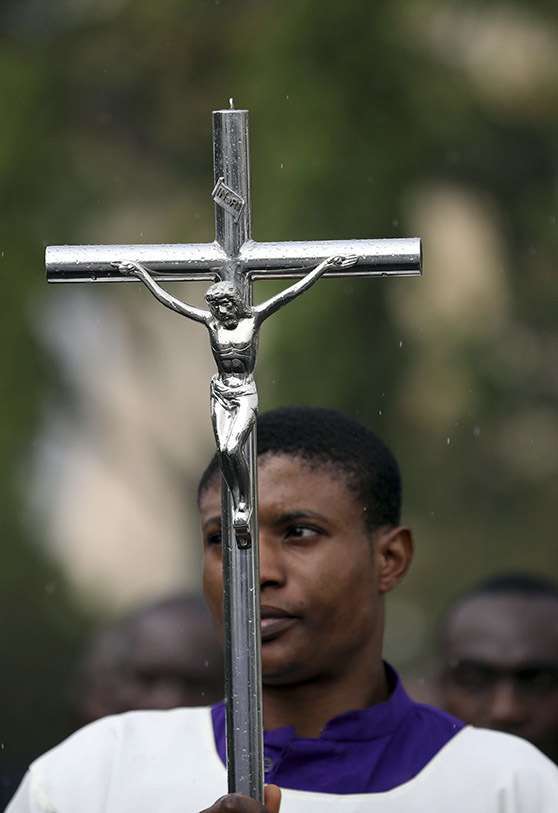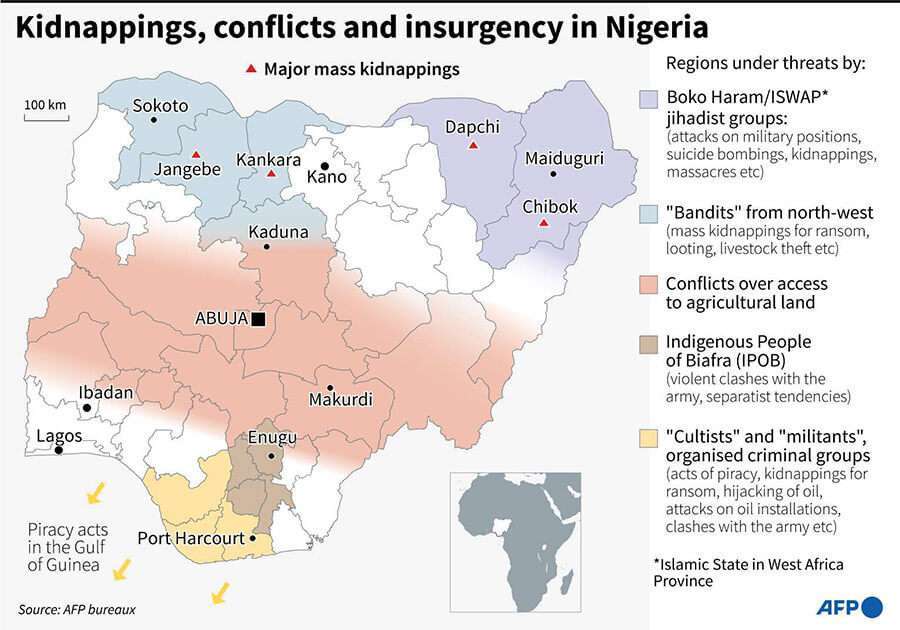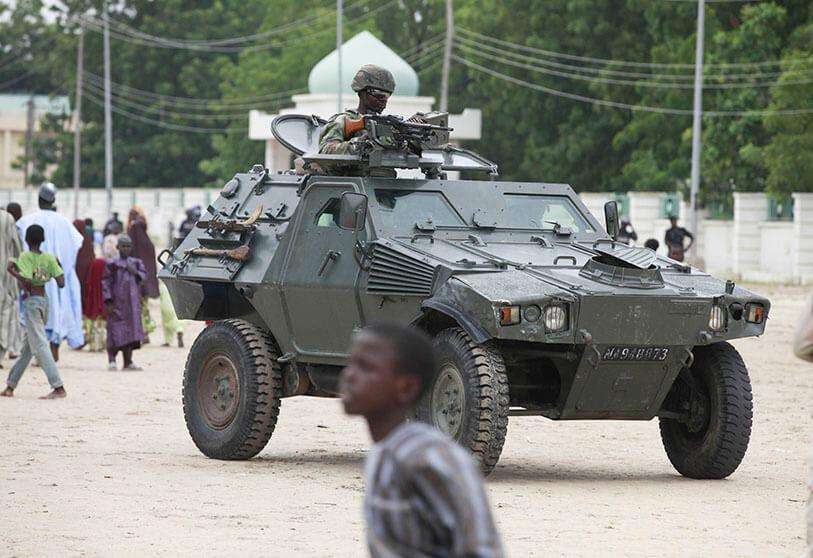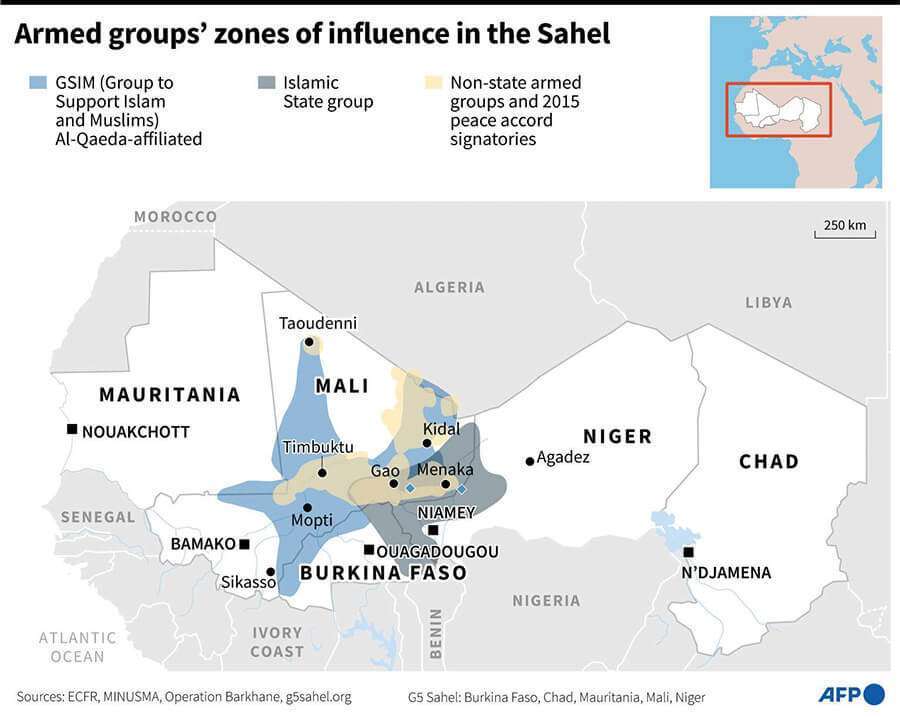17 Christians are killed every day by jihadists in Nigeria

Jihadism in the Sahel region continues to spread. After the containment of jihadism, especially the Daesh terrorist group, in Syria and Iraq, the Sahel basin is hosting a cohort of jihadist groups that destabilise security and thus the chances of prosperity in the area. Boko Haram, ISWA and even Al Qaeda are the main terrorist groups operating in the region and threaten to disrupt the stability and security of its population.
If we add to this the internal fighting in some African countries, we find a very complicated scenario for the development of a solid, safe and strong country. In the case of Nigeria, terrorist attacks on the Nigerian population have continued to multiply in recent years, and among those affected, Christians are one of the main victims of the expansion and consolidation of terrorism in the region. To this must be added the existing clashes between the Fulani tribe, of Muslim majority, and the Hausa ethnic group, followers of the Christian religion, who have been confronting each other for decades over the control of land used for agriculture and livestock farming.

In this context, a study led by the International Association for Civil Liberties and the Rule of Law (InterSociety) in Onitsha, eastern Nigeria, has revealed that during the first 200 days of 2021 more than 3,000 Christians have been killed by Islamic terrorists in Nigeria, bringing this figure to 17 killed per day. This total figure includes, in addition to the faithful, ten Catholic priests and Protestant pastors.
The report states that "the number of defenceless Christians stabbed to death by Islamic jihadists in Nigeria and their collaborators in the security forces in the last 200 days, or from 1 January to 18 July 2021, has risen to no less than 3,462". Similarly, it points out that "this is only 68 deaths less than the total number of Nigerian Christian deaths in 2020, which the Open Doors Global Watchlist of Persecuted Christians estimates at 3,530".
This dramatic figure is the second highest recorded since 2014, which put the official jihadist death toll in the country at more than 5,000 killed by Boko Haram and jihadists in the Fulani War, a military campaign that took place in present-day Nigeria and Cameroon.

The report notes that the Boko Haram terrorist group was responsible for the murder of more than 4,000 Christians in 2014. On the other hand, the Fulani killed 1,299 Christian farmers in the same year. In the course of this year, the organisation noted that 2,200 Christians were abducted between 1 January and 30 April while from 1 May to 18 July they recorded another 780 abductions, bringing the total number of abductees to 3,000. Of these, researchers say that at least three out of 30 Christians may have died during their abduction.
The Fulani group has topped the list of the highest number of killings, bringing the total number killed this year to some 1,909 Christians, followed by Boko Haram, Islamic State in West Africa and bandits who reportedly killed a total of 1,603 Christians. Similarly, the report adds that the Nigerian government itself in conjunction with the Nigerian police forces caused the death of 490 Christians. These figures place Nigeria as a country facing "one of the most serious security challenges in Nigeria".

The conflict between the mostly Christian farmers and Fulani herdsmen is a conflict that dates back to the 2000s. Since 2000, violence between the two groups has killed more than 19,000 people and displaced thousands as a result of the expansion of the farming and herding population in a majority part of the Sahel. In addition to the Nigerian government's inability to put an end to these disputes, ISWAP, the Daesh affiliate in the area, and Boko Haram are taking advantage of this delicate situation and the gap in the coverage of basic population needs both to gain followers and to gain a foothold in the area.
In addition, the agricultural and livestock conflict goes far beyond religion, as it responds to ways of life that are deeply rooted in this society. On the one hand, the transhumance of livestock in the north, with a Muslim majority from the Hausa and Fulani ethnic groups, and on the other, the sedentary farming in the south, with a Christian majority from the Yoruba ethnic group, continues to be one of the country's main internal problems.
Along these lines, the churches have suffered heavy repression by these jihadist groups. Figures indicate that around 300 churches have been attacked since January of this year. The state of Taraba, located in the northwest of Nigeria, has been the most affected area in these terms, as at least 70 churches have been attacked or threatened.

Despite the dramatic figures, the study concludes by lamenting the impunity to which the perpetrators are subjected because, according to the organisation, "the Nigerian government has abandoned the surviving victims and the families of those killed".
According to the report, "the country's security forces have faltered and compromised to the point that they barely intervene when vulnerable Christians are at risk of threats or attacks, but only after these attacks do they appear to arrest and frame the very populations that were threatened or attacked".
The report concludes that "in the north, jihadists operate freely under the cover and protection of security forces. They kidnap, kill, loot, loot, destroy or burn and forcibly convert captured and unprotected Christians to their sacred homes of worship and learning. But the security forces themselves respond rudely and brutally with absolute ferocity against Christians in the south and north accused of breaking the law", in a situation that, despite existing counter-terrorism policies, is still far from putting an end to one of the biggest problems in the Sahel and one of the biggest political and social challenges of the coming decades.










